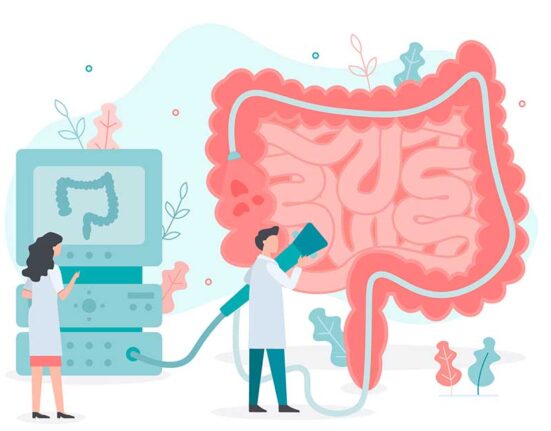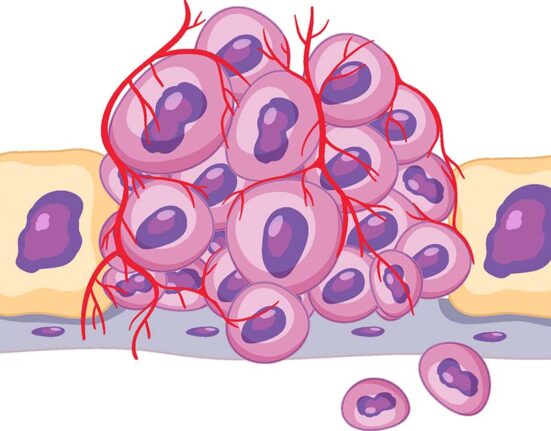This article is the second in the series that takes a deeper look into what the top cancer in Singapore is, broken down by age group. The first article focuses on top cancers for males. Here, we shall look at those for females. With there being approximately 1 in 4 people in Singapore that may be diagnosed with cancer in their lifetimes, knowing what types of cancer are more prevalent may help guide choices in the types of health or cancer screening to undergo. Note that the chances of contracting cancer are affected by other factors such as your family cancer history, personal genetics, lifestyle, environment, etc.
Top Cancer In Singapore For Females – Differences In Most Frequent Cancers Between Age Groups
The overall top cancer in Singapore for females is breast cancer, with 12,735 new cases diagnosed during the period 2017 – 2021 (source: Singapore Cancer Registry Annual Report 2021). This is followed by colorectal cancer with 5,542 diagnosed cases, and lung cancer with 3,388 diagnosed cases.
There are differences though, when the top cancers are based on age grouping.
Most Frequent Incident Cancers For Females By Age Group (2017-2021)
Age Group: 0-29 Years
Cancers affecting younger people are broadly different from those affecting older patients. In children, cancers may more likely impact parts of the body that are still developing. This includes the brain, central nervous system, bones, connective tissues and blood. For this younger age group, the most common cancer for females is lymphoid neoplasms (similar to the case for males). These are cancers that originate from the lymphatic system, an important part of the body’s immunity system.
Thyroid cancer, which is a cancer of the thyroid gland that is found in the front part of the neck, is the second most common cancer for this age group. Ovary cancer is the 3rd most common cancer. Breast cancer, for which public screening programmes typically start later in life (50 years in Singapore), is in fact already the 4th most common cancer for such younger women.
| Rank | Site | No. | % |
| 1 | Lymphoid neoplasms | 195 | 19.9 |
| 2 | Thyroid | 145 | 14.8 |
| 3 | Ovary | 140 | 14.3 |
| 4 | Breast | 96 | 9.8 |
| 5 | Myeloid neoplasms | 69 | 7.1 |
| 6 | Uterus | 48 | 4.9 |
| 7 | Brain & Central Nervous System | 42 | 4.3 |
| 8 | Bone | 33 | 3.4 |
| 9 | Connective tissue | 32 | 3.3 |
| 10 | Cervix | 22 | 2.2 |
| All Sites | 978 | 100.0 |
Age Group: 30-39 Years
For females in the 30-39 age group, breast cancer becomes the top cancer in Singapore, while thyroid cancer remains the 2nd most common. Uterine cancer become more common, taking the 3rd spot. Colorectal and lung cancers are now also within the 10 most common cancers for this age group. Women with risk factors for breast cancer (such as a family history) can consult their doctors to see if they should undergo screening.
| Rank | Site | No. | % |
| 1 | Breast | 686 | 32.5 |
| 2 | Thyroid | 269 | 12.7 |
| 3 | Uterus | 187 | 8.9 |
| 4 | Cervix | 169 | 8.0 |
| 5 | Ovary | 157 | 7.4 |
| 6 | Lymphoid neoplasms | 131 | 6.2 |
| 7 | Colon & rectum | 100 | 4.7 |
| 8 | Myeloid neoplasms | 60 | 2.8 |
| 9 | Lung | 40 | 1.9 |
| 10 | Non-melanoma skin | 35 | 1.7 |
| All Sites | 2,110 | 100.0 |
Age Group: 40-49 Years
Once females reach 40-49 years of age, uterine cancer displaces thyroid cancer as the 2nd most commonly diagnosed form of cancer. Breast cancer remains the most common by a significant margin. People with risk factors should consider screening for colorectal cancer at this stage, as the number of cases is tripled compared to the previous age group.
There is a substantial increase in the total number of cases of cancer compared to the 30-39 age group.
| Rank | Site | No. | % |
| 1 | Breast | 2,597 | 46.9 |
| 2 | Uterus | 568 | 10.3 |
| 3 | Thyroid | 343 | 6.2 |
| 4 | Colon & rectum | 340 | 6.1 |
| 5 | Ovary | 328 | 5.9 |
| 6 | Cervix | 233 | 4.2 |
| 7 | Lung | 180 | 3.3 |
| 8 | Lymphoid neoplasms | 142 | 2.6 |
| 9 | Non-melanoma skin | 87 | 1.6 |
| 10 | Kidney | 86 | 1.6 |
| All Sites | 5,536 | 100.0 |
Age Group: 50-59 Years
The number of cancer cases for this age group increases by a substantial amount to over 8,800 newly diagnosed cases over the 5-year period. It is hence particularly important that people in this age group screen for cancer regularly.
Breast cancer remains the most common cancer, whereas colorectal cancer moves up to 3rd position, reflecting the increased risk for people in this age group. There is also a sharp increase in the number of lung cancer cases.
The government’s Screen for Life programme starts supporting breast and colorectal screenings from age 50. People in this age group should consider also lung cancer screening (low-dose CT scan), particular if there are risk factors.
| Rank | Site | No. | % |
| 1 | Breast | 3,352 | 38.0 |
| 2 | Uterus | 996 | 11.3 |
| 3 | Colon & rectum | 910 | 10.3 |
| 4 | Ovary | 502 | 5.7 |
| 5 | Lung | 481 | 5.5 |
| 6 | Thyroid | 409 | 4.6 |
| 7 | Lymphoid neoplasms | 371 | 4.2 |
| 8 | Cervix | 235 | 2.7 |
| 9 | Non-melanoma skin | 173 | 2.0 |
| 10 | Kidney | 153 | 1.7 |
| All Sites | 8,814 | 100.0 |
Age Group: 60-69 Years
The top 3 most common cancers for this age group mirrors that for females overall – the most common being breast cancer, followed by colorectal cancer and lung cancer. The total number of cancer diagnosis again increases from the previous age bracket (but at a slower pace). This is despite there being a smaller population of females in this age bracket.
| Rank | Site | No. | % |
| 1 | Breast | 3,292 | 30.7 |
| 2 | Colon & rectum | 1,517 | 14.1 |
| 3 | Lung | 945 | 8.8 |
| 4 | Uterus | 837 | 7.8 |
| 5 | Lymphoid neoplasms | 557 | 5.2 |
| 6 | Ovary | 428 | 4.0 |
| 7 | Pancreas | 334 | 3.1 |
| 8 | Non-melanoma skin | 333 | 3.1 |
| 9 | Thyroid | 271 | 2.5 |
| 10 | Stomach | 268 | 2.5 |
| All Sites | 10,740 | 100.0 |
Age Group: 70-79 Years
For the 70-79 age group, breast, colorectal, and lung cancers remain the top 3 cancers in Singapore. The total number of cancer diagnosis falls compared to the 60-69 age group – however, there are substantially fewer people in the 70-79 age group. The proportion of people contracting cancer in the 70-79 group is thus much higher than for the 60-69 group (848.6 cases per 100,000 population for age 60-69 years, versus 1,249.8 cases per 100,000 population for age 70-79 years).
| Rank | Site | No. | % |
| 1 | Breast | 1,815 | 21.8 |
| 2 | Colon & rectum | 1,373 | 16.5 |
| 3 | Lung | 991 | 11.9 |
| 4 | Lymphoid neoplasms | 514 | 6.2 |
| 5 | Non-melanoma skin | 436 | 5.2 |
| 6 | Uterus | 370 | 4.5 |
| 7 | Pancreas | 369 | 4.4 |
| 8 | Liver | 358 | 4.3 |
| 9 | Stomach | 296 | 3.6 |
| 10 | Myeloid neoplasms | 217 | 2.6 |
| All Sites | 8,309 | 100.0 |
Age Group: 80+ Years
For females aged 80 and above, colorectal cancer now forms the largest proportion of all cancer diagnosis. Breast and lung cancers nonetheless remain within the top 3 most frequently occurring ones. The total number of cancer cases is in excess of 6,000. The incidence rate for this age is the highest of all age brackets, at 1,773.9 per 100,000 population.
| Rank | Site | No. | % |
| 1 | Colon & rectum | 1,285 | 20.1 |
| 2 | Breast | 897 | 14.0 |
| 3 | Lung | 745 | 11.7 |
| 4 | Non-melanoma skin | 641 | 10.0 |
| 5 | Liver | 338 | 5.3 |
| 6 | Stomach | 329 | 5.1 |
| 7 | Lymphoid neoplasms | 311 | 4.9 |
| 8 | Pancreas | 292 | 4.6 |
| 9 | Myeloid neoplasms | 234 | 3.7 |
| 10 | Gallbladder | 139 | 2.2 |
| All Sites | 6,389 | 100.0 |
The Chances Of Cancer Increases With Age
In addition to having a differ set of top cancers affecting us as we age, the data also shows that age also increases the probability of contracting cancer. The per-100,000 population incidence rate for cancer jumps 4.6 times between the youngest 0-29 group and the next group (age 30-39 years), and then by another 2.5 times to the 40-49 bracket. Thereafter, the incidence rate increases around 1.5 times between age brackets. The incidence rate in the 80+ age group is a substantial 60 times higher compared to the 0-29 years group.
| Age | 0-29 years | 30-39 years | 40-49 years | 50-59 years | 60-69 years | 70-79 years | 80+ years |
| No. of Incidence | 978 | 2,110 | 5,536 | 8,814 | 10,740 | 8,309 | 6,389 |
| Age-specific rate (per 100,000 population) | 29.5 | 135.7 | 350.5 | 578.3 | 848.6 | 1,249.8 | 1,773.9 |
The following Singapore population breakdown from the Department of Statistics is provided as an additional point of reference.
| Singapore | 2021 |
| Total Female Residents | 2,033,728 |
| 0-29 years | 636,939 |
| 30-39 years | 307,255 |
| 40-49 years | 306,879 |
| 50-59 years | 295,450 |
| 60-69 years | 261,519 |
| 70-79 years | 144,971 |
| 80+ | 80,715 |
Take Active Steps To Protect Yourself Against Cancer
We can protect ourselves against cancer via maintaining a healthier lifestyle, such as reducing our intake of alcohol and processed foods, avoid smoking or 2nd-hand smoke, managing our stress, and ensuring we get adequate amount of sleep each day.
1. Avoid tobacco
- This includes cigarettes, e-cigarettes, cigars, shisha, and chewable tobacco products. Inhaling secondhand smoke also increases the chances of developing cancer.
- By quitting smoking, the risk of developing these types of cancers are reduced: cancers of the lung, larynx, oral cavity and pharynx, esophagus, pancreas, bladder, stomach, colon and rectum, liver, breast, cervix, kidney, and acute myeloid leukemia.
2. Minimising alcohol intake.
- There are strong links between alcohol consumption and developing the following cancers: Head and neck cancers, oesophageal, liver, breast, and colorectal cancers.
- Choosing not to drink alcohol is the healthiest choice. Individuals who choose to drink should limit their alcohol intake to no more than 2 drinks a day for men and one drink a day for women.
3. Vaccinations
- Immunization reduces the chances of developing certain cancers.
- For instance, hepatitis B vaccination protects against hepatitis B infection, as chronic hepatitis B is a major risk factor to developing liver cancer.
- Human Papillomavirus (HPV) vaccine has the potential to prevent more than 90% of HPV-attributable cancers (mainly cervical cancers and many cancers of the vagina, vulva, penis, anus, rectum, and oropharynx).
4. Protecting from the sun
- Skin cancer is one of the most preventable forms of cancer.
- Proper use of sunblock reduces the risk of skin cancer and sun damage.
- Stay out of the sun between 10am to 4pm when UV rays are strongest. When outdoors, avoid exposure to direct sunlight and remain in the shade. Wear clothing that covers as much skin as possible.
- Avoid tanning beds
5. Health screening and early detection
- Cancers often present no symptoms in the early stages and may go untreated until they have developed into an advanced stage whereby treatment become more difficult. Fortunately, by going for regular health screening, there is a greater potential to detect cancers in its early stages before symptoms appear, when the disease might be more treatable.
- In Singapore, there is no shortage of opportunities for health screening. The key is deciding on the screening tests that can best detect cancer early in your age group.
- Breast cancer screening with mammogram is widely accepted as appropriate and beneficial for women above the age of 50. Women aged 40 to 49 years old can also screen for breast cancer with mammogram but they should talk to their doctor about the benefits and limitations of mammograms in this age group so that they can make an informed choice about going for screening.
- Cervical cancer screening should be offered to all women who have ever had sexual intercourse, from the age of 25. There are two tests that can be used to screen for cervical cancer – Pap smear and HPV testing. Pap smear looks for precancers, cell changes on the cervix that might become cervical cancer if they are not treated appropriately. The HPV test detects the presence of the human papillomavirus, a virus that can lead to the development of abnormal cervical cells or cervical cancer. Women aged 25 to 29 years should be screened with the Pap smear, at least once every 3 years. Women aged 30 years and above should be screened with HPV testing. This should be performed at least once every 5 years.
- Colorectal cancer screening prevents cancer by removing polyps during colonoscopy, and detects early cancers with a good chance of a cure. For individuals with no risk factors, colorectal cancer screening should begin at the age of 50, and can take place in the form of annual faecal occult blood test, colonoscopy every 5-10 years or CT colonoscopy every 5 years.
- Lung cancer screening is currently not part of our national health screening programme. However for high risk individuals, screening using low dose computed tomography (LDCT) is advised. Low dose CT scanning is a type of imaging that uses a low dose of radiation to produce detailed images of the lungs. High risk individuals are people aged between 55 – 74 years, have smoked a pack of cigarettes per day for 30 years or more, and continue to smoke or have quit smoking.
Where To Get Health Screening
Health365 has partnerships with trusted healthcare providers in Singapore and across the region.
- Looking for a S$300 health screening that includes a suite of tumour marker blood tests for cancer detection? Explore this specially curated package from AsiaMedic : Basic Plus Package for Men or Basic Plus Package for Women.
- Explore a comprehensive range of packages at different price points from our partners in Singapore and overseas here.
- Contact us for enquiries.
Further Readings
Article on Top Cancer In Singapore By Age Group (Males)
Back to our Cancer homepage – learn more about cancer.
Protect against cancer, cardiovascular disease, and other chronic diseases with regular health screening. Compare and shop for health screenings from Singapore and regional healthcare providers at a single convenient platform - shop.health365.sg
This article is informative only and is not intended to be a substitute for professional medical advice, diagnosis, or treatment, and should never be relied upon for specific medical advice.
























































